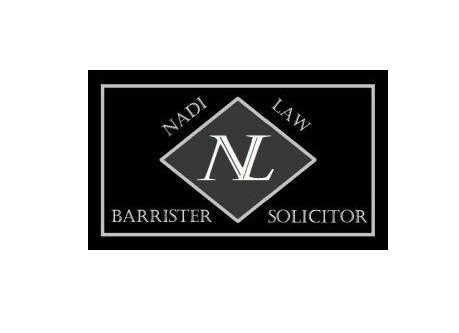
Employment termination can be a complex and emotional experience for employees. Whether you’re facing a layoff, resigning, or believe you’ve been wrongfully terminated, it’s essential to understand your rights and the legal aspects involved. This blog aims to provide insights into the different types of employment termination, the role of employment termination lawyers, and steps to take if you suspect your termination was unjust.
Types of Employment Termination 🚪
Employment termination can generally be categorized into two main types: voluntary and involuntary. Each has unique implications and processes.
1. Voluntary Termination
Voluntary termination occurs when an employee chooses to leave their job willingly. Common reasons for this type of termination include:
- Career Advancement: Seeking a better position or opportunities for professional growth.
- Relocation: Moving to a new city or country for personal or family reasons.
- Job Satisfaction: Looking for a more fulfilling or supportive work environment.
If you decide to resign, it’s generally advisable to provide your employer with advance notice, typically two weeks, to ensure a smooth transition and maintain professional relationships.
2. Involuntary Termination
Involuntary termination occurs when an employer decides to end an employee’s contract. This can happen for various reasons:
- Performance Issues: Consistently failing to meet job expectations or performance standards.
- Misconduct: Engaging in behavior that violates company policies, such as harassment or theft.
- Layoffs or Redundancy: Economic conditions or organizational restructuring that necessitate job cuts.
Understanding the reason behind your involuntary termination is critical, especially if you suspect it may be wrongful.
What is Wrongful Termination? ⚠️
Wrongful termination refers to the unlawful dismissal of an employee in violation of their rights. It can occur in several scenarios, including:
- Discrimination: Being fired based on race, gender, age, religion, or other protected characteristics.
- Retaliation: Dismissal for reporting illegal activities or unsafe work conditions, often referred to as whistleblowing.
- Breach of Contract: If an employer fails to follow the terms outlined in an employment contract during termination.
If you believe your termination may fall into one of these categories, consulting with a wrongful termination lawyer is crucial.
The Role of Employment Termination Lawyers ⚖️
Employment termination lawyers specialize in representing employees who have been wrongfully terminated or are dealing with complex employment issues. Here’s how they can assist you:
Case Evaluation
A knowledgeable termination lawyer will assess your case to determine whether you have a valid claim for wrongful termination. They will consider various factors, including:
- The reasons for your termination
- Evidence supporting your claims
- Relevant employment laws and regulations in your jurisdiction
Legal Representation
If you choose to pursue legal action, a wrongful termination attorney can represent you in negotiations or court. Their role includes:
- Drafting and filing necessary legal documents
- Preparing you for court appearances and depositions
- Negotiating settlements with your employer
Having an experienced lawyer by your side can significantly increase your chances of achieving a favorable outcome.
Guidance and Support
Navigating the legal process can be overwhelming. A wrongful termination lawyer provides essential guidance and support throughout your case. They can help you understand:
- Your rights as an employee
- The potential outcomes of your case
- The best strategies for pursuing your claim
Recognizing Signs of Wrongful Termination 🔍

Identifying whether your termination was wrongful can be challenging. Here are some common signs to look for:
- Discriminatory Practices: If your termination appears to be related to a protected characteristic, such as age, race, or gender, it may be wrongful.
- Retaliation: If you reported unsafe conditions or illegal activities and were terminated shortly after, this could indicate retaliatory dismissal.
- Breach of Contract: If your employer did not adhere to the terms outlined in your employment contract, you may have grounds for a wrongful termination claim.
The Importance of Documentation 📄
Maintaining detailed documentation is crucial when pursuing a wrongful termination claim. Consider the following types of records:
- Emails and Correspondence: Save all communications related to your job and termination.
- Performance Reviews: Keep copies of any evaluations that could support your case.
- Meeting Notes: Document conversations regarding your performance or disciplinary actions.
This evidence can be vital in building a strong case.
Steps to Take After Termination 🚀
If you find yourself terminated, consider these steps:
1. Review Your Employment Contract
Examine your employment contract to understand your rights and obligations. This can help you identify whether your termination was lawful.
2. Seek Legal Counsel
Consulting with an employment termination lawyer can provide clarity on your situation and help you determine the best course of action. They can assess the strength of your case and guide you through the legal process.
3. File for Unemployment Benefits
If you are eligible, apply for unemployment benefits to provide financial support during your job search. This can help ease the transition as you look for new opportunities.
4. Begin Job Hunting
Start updating your resume and exploring job opportunities. Networking with former colleagues and contacts can be beneficial as you search for a new role.
Conclusion
Navigating employment termination can be a challenging experience, but understanding your rights and the legal implications can empower you to take informed actions. Whether your termination was voluntary or involuntary, knowing your options is essential. If you believe you have been wrongfully terminated, consulting with experienced employment termination lawyers can help you navigate the complexities of your case and advocate for your rights.
For more information on employment law and the resources available to you, visit our website. Remember, you don’t have to face this challenge alone—professional support is available to help you secure the justice you deserve. 📞💼





Comments